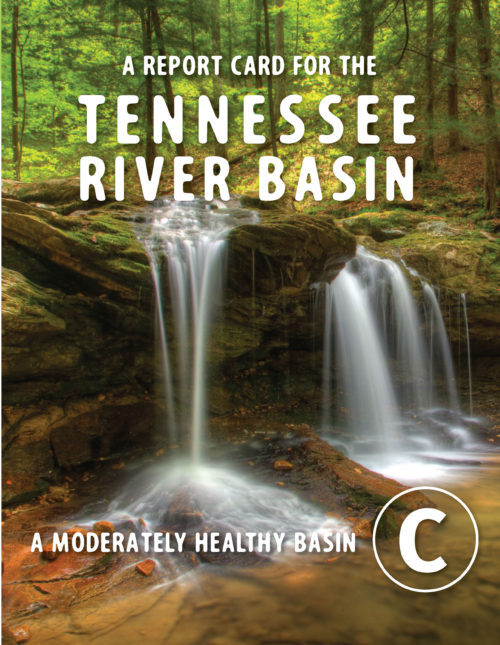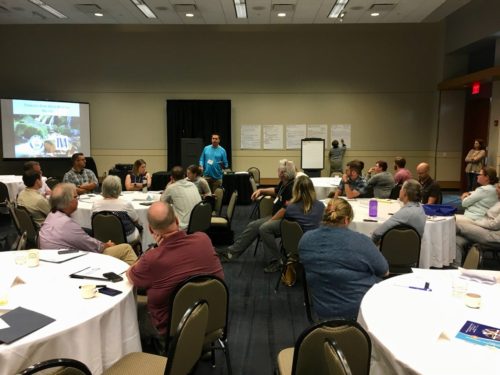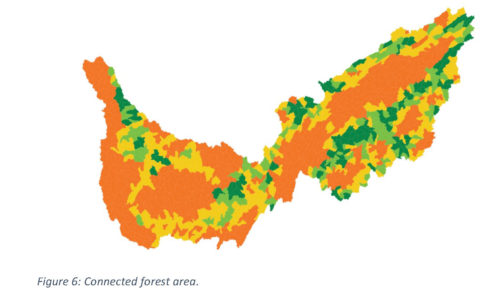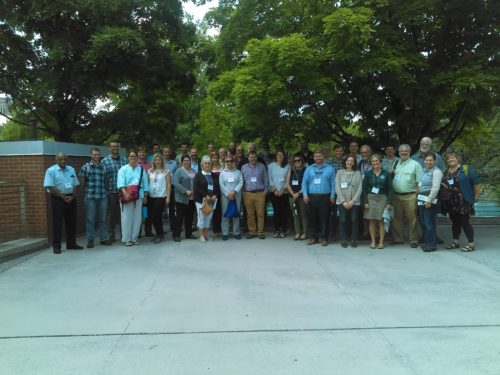Next steps for the Tennessee River Basin Report Card
Heath Kelsey · | Environmental Report Cards | Science Communication |The Tennessee River Basin Report Card was released in February this year. It was made possible in large part because of feedback the IAN team solicited during the Tennessee River Basin Planning Network (TRBN) meeting in Chattanooga, Tennessee in August, 2017. Discussions we had at that meeting decided several issues related to the report card scope and detail that carried through to the finished product.

Although the final report card was released earlier this year, many of the participants at the 2017 meeting had not yet seen the finished product. I attended the TRBN Planning meeting again this year in Knoxville Tennessee on August 13-14 this year to finally share this great achievement. It was a good meeting, with active participation from about 100 attendees representing the management, science, and user communities. It was great to finally share the report card with everyone and have a discussion on the next steps for the project. Our view is that the report card has the potential to be extremely valuable to the research, management and citizen communities, but that it is not utilized to the extent that it could be.

For one, the report card did not have an extensive print run. Although the report card and the methods document can be downloaded from IAN Press, there is no substitute to having professionally printed report cards that would be excellent handouts at community events, meetings with elected officials, and as resources for educators and managers. We agreed that the first step would be to cobble together funding from several organizations to support a medium or large print run of 2,000 or so.
The Report Card project also needs a home within the watershed. We're happy to keep engaged on this project, but sooner or later a report card for the Tennessee River shouldn't have its home in Maryland. The TRBN is only now formalizing its structure, and will likely remain primarily a network of organizations without resources of its own, so is probably not well suited to being the owner of the project. TRBN can serve a vital role however, as a champion for the report card and can help organize future efforts to revise and improve it. We're currently following up with interested organizations and I'm confident that the report card will find a good roost to crow from within the Tennessee River watershed.
The Tennessee River Report Card is built with data available at the small watershed scale, which makes it ideal for identifying areas of particular concern. The Tennessee River Report Card Methods Document includes maps of each of the indicators' results in each small (HUC12) watershed.

There seemed to be good support for the report card as a priority for the coming year. Priorities include getting it printed in numbers and begin sharing it as a way to increase awareness of important issues in the basin.
At the close of day one, after the social event, we also had a chance to screen an extended preview of a film called Hidden Rivers (short preview here), by Freshwater Illustrated. I think the film and report card can be used very effectively together as strong outreach and awareness tools.
Credit Jeremy Monroe, Freshwater Illustrated.
As always, the people I met in Knoxville were the highlight of the trip. In an age when the environment is threatened in so many ways, it's important to be reminded everywhere you go, there are dedicated professionals and non-professionals working together for conservation.

About the author
Heath Kelsey

Heath Kelsey has been with IAN since 2009, as a Science Integrator, Program Manager, and as Director since 2019. His work focuses on helping communities become more engaged in socio-environmental decision making. He has over 15-years of experience in stakeholder engagement, environmental and public health assessment, indicator development, and science communication. He has led numerous ecosystem health and socio-environmental health report card projects globally, in Australia, India, the South Pacific, Africa, and throughout the US. Dr. Kelsey received his MSPH (2000) and PhD (2006) from The University of South Carolina Arnold School of Public Health. He is a graduate of St Mary’s College of Maryland (1988), and was a Peace Corps Volunteer in Papua New Guinea from 1995-1998.